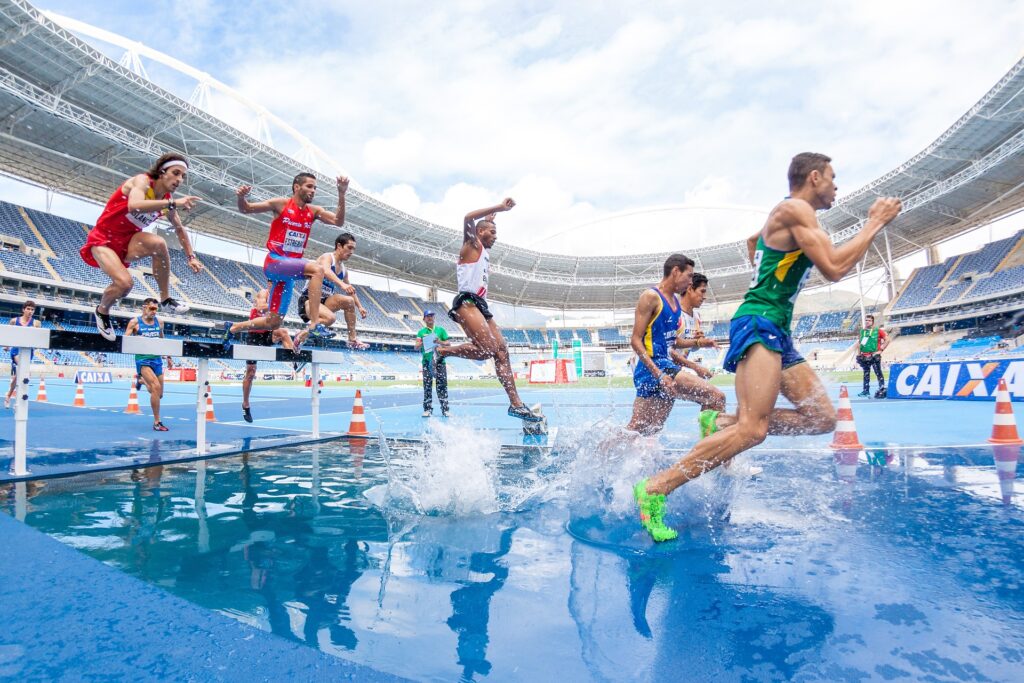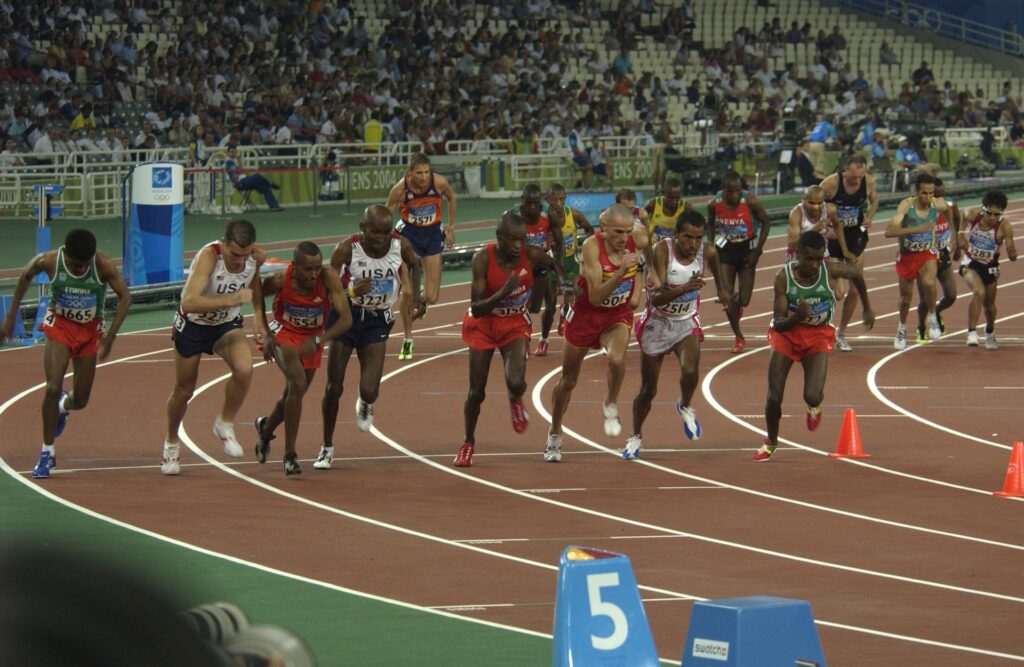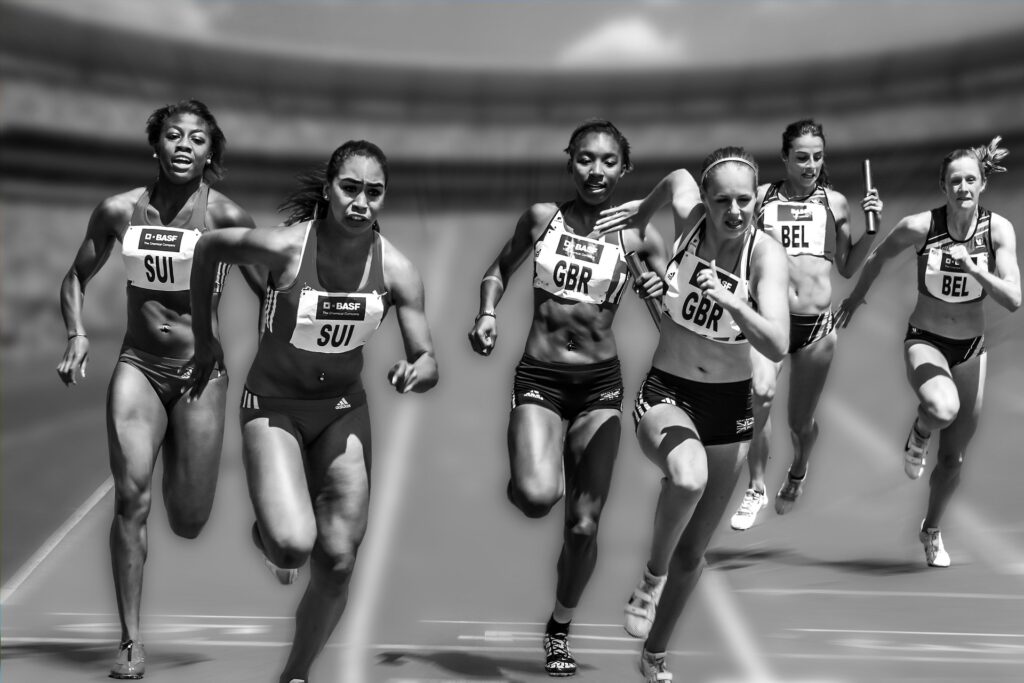Posted: January 11th, 2023
What Role Does Sporting Success Play in a Nation’s Development? 8 Examples

Sporting success can play a significant role in a nation’s development, from boosting morale and pride to creating economic and social benefits. But what exactly does this mean, and how does it manifest in different countries? In this article, we’ll explore the various ways in which sporting success can contribute to a nation’s growth, using a variety of examples from around the globe.
Sporting success has long been seen as a reflection of a nation’s overall strength and development. From the ancient Olympic Games, where city-states would send their best athletes to compete, to modern international competitions like the World Cup and Olympics, sports have always played a significant role in how nations are perceived by the world. But what exactly is the relationship between a nation’s sporting success and its overall development?
One of the most obvious ways in which sporting success can contribute to a nation’s development is by increasing national pride and morale. When a country’s athletes excel on the international stage, it can create a sense of unity and accomplishment among its citizens. This can be seen in countries like Jamaica, where the success of sprinters like Usain Bolt has led to increased national pride and a feeling of cultural identity. In fact, Bolt’s success has been credited with helping to improve Jamaica’s international image, as well as with boosting tourism and economic growth in the country.
Another way in which sporting success can contribute to a nation’s development is by creating economic benefits. This can happen in a number of ways, including increased tourism, increased investment, and increased sponsorship and advertising opportunities. For example, in South Africa, the success of the national rugby team has led to increased tourism and investment in the country, as well as to increased opportunities for local businesses. Similarly, in Brazil, the success of the national soccer team has led to increased economic growth and investment in the country.

Sporting success can also have positive social benefits, particularly in terms of improving health and fitness. When a country’s athletes excel on the international stage, it can inspire more people to get involved in sports and physical activity, which can have positive effects on physical and mental health. This is particularly true in developing countries, where access to physical activity and sports can be limited. For example, in Kenya, the success of the country’s long-distance runners has led to increased interest in running and other sports, and has helped to improve the health and fitness of the population.
In addition to these benefits, sporting success can also play a role in political and social development. This is particularly true in countries where sports are closely tied to national identity and where political and social issues are closely tied to sports. For example, in the United States, the success of the national soccer team has been closely tied to issues of race and equality, and has been used as a platform for social and political change. Similarly, in South Korea, the success of the national soccer team has been closely tied to issues of national identity and unity, and has been used as a way to promote national pride and unity.

First, let’s look at the economic benefits of sporting success. Hosting major sporting events, like the World Cup or Olympics, can bring in billions of dollars in tourism and infrastructure development. The construction of stadiums and other sports facilities can create jobs and boost local economies. Additionally, the exposure that comes with hosting and winning international competitions can increase investment and trade, as well as improve a nation’s image and brand.
But the benefits of sporting success go beyond just the economic realm. Sporting events can bring people together and build a sense of national pride and unity. This is particularly true for countries that are going through difficult times or are recovering from a crisis. Winning a major international competition can act as a unifying force, bringing people from all walks of life together and lifting their spirits.
Moreover, sporting success can also play a role in promoting health and wellness. Participating in sports and physical activity has been shown to have numerous benefits for physical and mental health, and countries with strong sporting cultures often have healthier populations. The promotion of sport in schools and the community can encourage children to lead active and healthy lives, and can also inspire them to set goals and strive for excellence, both in sports and in other areas of life.
However, it is also important to note that while sporting success can have many positive effects, it is not a panacea for all of a nation’s problems. Success in sports cannot solve issues such as poverty, unemployment, and inequality on its own. Additionally, the intense focus on winning at all costs can lead to a neglect of important social issues and can also create a negative and unhealthy culture, such as the use of performance-enhancing drugs.

In conclusion, sporting success can play a significant role in a nation’s development. It can bring economic benefits, foster national pride and unity, and promote health and wellness. However, it is important to remember that it should be seen as just one piece of a larger puzzle and not as a solution to all of a nation’s problems. A good balance should be maintained where both focus on sport and attention on other important matters should be equal. Nevertheless, sporting success is an exciting and enjoyable way for nations to come together and be proud of their achievements, and it can serve as a powerful symbol of a nation’s overall strength and development.
Example of Roles played by Sporting Success

Increased national pride and morale: Jamaica’s sprinters, such as Usain Bolt, have led to increased national pride and a sense of cultural identity.
Economic benefits: The success of South Africa’s national rugby team has led to increased tourism and investment in the country, as well as increased opportunities for local businesses.
Positive social benefits: In Kenya, the success of the country’s long-distance runners has led to increased interest in sports and physical activity, and has helped to improve the health and fitness of the population.
Political and social development: The success of the United States national soccer team has been closely tied to issues of race and equality and used as a platform for social and political change.
Promote national identity and unity: The success of South Korea national soccer team has been closely tied to issues of national identity and unity and used to promote national pride and unity.
Boost tourism: The successful Athletes from Brazil has led to increased economic growth and investment in the country, as well as attracted tourist to the country.
Inspire the youth: The success of young athletes in countries like Mexico, have been inspirational to the youth population and have led to an increase in youth participation in sports.
Promote fitness and healthy lifestyles: The success of Olympic Athletes from Japan in different disciplines has led to an increase in fitness and healthy lifestyle awareness among the Japanese population.
Frequently Asked Questions

When it comes to understanding the role that sporting success plays in a nation’s development, there are a number of frequently asked questions that come up.
We’ll explore some of the most common questions and provide examples to help illustrate the ways in which sporting success can contribute to a nation’s growth.
How does sporting success increase national pride and morale?
One of the most obvious ways in which sporting success can contribute to a nation’s development is by increasing national pride and morale. When a country’s athletes excel on the international stage, it can create a sense of unity and accomplishment among its citizens. For example, in Jamaica, the success of sprinters like Usain Bolt has led to increased national pride and a feeling of cultural identity. This is because when a nation’s athletes achieve success it creates a sense of belonging, and citizens feel proud of their nation.
How can sporting success lead to economic benefits?
Sporting success can also have economic benefits, particularly in terms of increased tourism, investment, and sponsorship and advertising opportunities. For example, in South Africa, the success of the national rugby team has led to increased tourism and investment in the country, as well as to increased opportunities for local businesses. Similarly, in Brazil, the success of the national soccer team has led to increased economic growth and investment in the country. This happens because success in sports attracts investors, tourists and businesses.
Sporting success can also have positive social benefits, particularly in terms of improving health and fitness. When a country’s athletes excel on the international stage, it can inspire more people to get involved in sports and physical activity, which can have positive effects on physical and mental health. This is particularly true in developing countries, where access to physical activity and sports can be limited. For example, in Kenya, the success of the country’s long-distance runners has led to increased interest in running and other sports, and has helped to improve the health and fitness of the population.
In addition to these benefits, sporting success can also play a role in political and social development. This is particularly true in countries where sports are closely tied to national identity and where political and social issues are closely tied to sports. For example, in the United States, the success of the national soccer team has been closely tied to issues of race and equality, and has been used as a platform for social and political change. Similarly, in South Korea, the success of the national soccer team has been closely tied to issues of national identity and unity, and has been used as a way to promote national pride and unity.
Can sporting success be used to promote tourism?
Yes, sporting success can be used to promote tourism. For example, in Mexico, the success of the national soccer team has led to increased tourism, as well as to increased investment in the country.
In conclusion, sporting success can play a significant role in a nation’s development, from boosting morale and pride to creating economic and social benefits. The examples mentioned in this article can show how nations can use sporting success to achieve their development goals and create a more cohesive and prosperous community.
Expert paper writers are just a few clicks away
Place an order in 3 easy steps. Takes less than 5 mins.